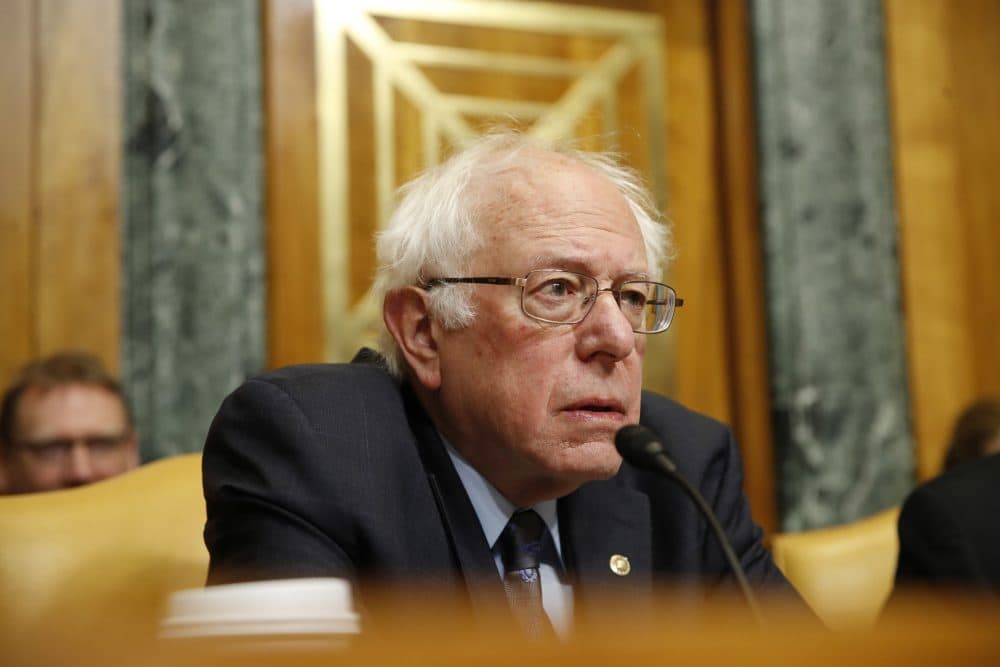Advertisement
Sen. Sanders: 'Enormous Wastes In The System Can Be Eliminated By Medicare For All'

A study from the libertarian-leaning Mercatus Center at George Mason University has come up with a new estimate for the price tag on the "Medicare for All" health care plan proposed by Sen. Bernie Sanders, I-Vt.
$32 trillion. That's how much federal spending could increase over a 10-year period. But some have been quick to point out that while the government would be spending more on health care, overall national health care expenditures would decrease by about $2 trillion.
Advocates and opponents of "Medicare for All" alike are pointing to this report by Charles Blahous to back their arguments. The most prominent proponent, Sen. Sanders, joined On Point Thursday to explain his single-payer plan and what this new analysis means.
"My response is that, according to the report, over a 10-year period we save, S-A-V-E, $2 trillion, and do away with the obscenity of the United States of America being the only major country on Earth not to guarantee health care to all people as a right," Sanders said. "Let us be very clear — and I think some of my conservative friends are trying to confuse the issue — right now, by far, we spend more money per person on health care than any other country on Earth. According to the [Organisation for Economic Co-operation and Development] it's not even close."
Sanders says that though there are objections that taxes would increase — and possibly more than double — under the single-payer plan, there are other costs that would drop.
"If you are that family of four paying $28,000 a year, you’re not going to be paying that," Sanders says. "Yes, you will be paying more in taxes, but you are going to be better off at the end of the day because you're not paying private insurance. Right now, we have millions of people in this country who actually have insurance, yet they don't go to the doctor because they can’t afford the deductibles or the co-payments. We're going to eliminate that. We're paying the highest prices in the world for prescription drugs — we're going to end that as well.
"We waste an enormous amount of money on the profiteering of the insurance companies, of the drug companies, of the huge amount of administrative waste."
